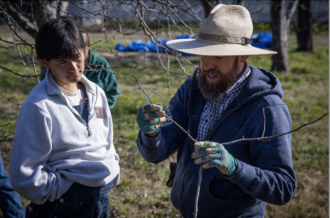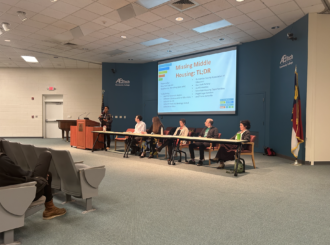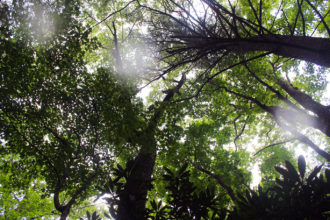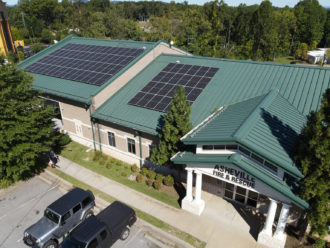“Western North Carolinians are concerned about record-breaking temperatures, extreme weather and the degradation of the environment they experience in their everyday lives.”


“Western North Carolinians are concerned about record-breaking temperatures, extreme weather and the degradation of the environment they experience in their everyday lives.”

Asheville-area health professionals are seeing itchy, sniffling allergy sufferers up to nine months of the year.

“Take a moment to contact your representatives in Raleigh. Let them know you want effective action to stop climate change.”

“I’m talking about roll up your sleeves, get down, get dirty, love, and connection and compassion,” says White, describing the Asheville-based nonprofit Let’s Choose Love. “And so, it became like a call to action. I thought, regardless of who we are, if we could let love be our guide in every decision in every interaction, we’d be fine.”

Warren Wilson College’s environmental studies department will begin offering a master’s degree in applied climate studies in summer 2025. The program will draw on the college’s natural sciences and social sciences programs to prepare students for mitigating the effects of climate change. Students will attend two summertime intensives, and the rest of the coursework will […]

“We all must take greater responsibility for the degradation of the planet and actions we must take to reverse the trajectory of this destructive curve.”

The forum follows the November release of a more than 150-page report from Opticos Design, a California-based company that found that Asheville’s existing zoning ordinances and other regulations encourage the construction of single-family housing over other types of housing, such as townhomes, duplexes and triplexes.

“It’s going to take a historic effort to close the gaps in housing supply that are close to the places where people work, shop and entertain themselves and where there may also be options for walking, biking or taking mass transit.”

“Even if it is something as simple as using paper bags instead of plastic bags, every little bit counts.”

Anne Craig is an environmental activist.

The direct filtration systems used by both the North Fork and William DeBruhl treatment plants may not be sufficient given the likelihood of more severe weather in the future. DEQ has called for upgrades to the plants, including the addition of sedimentation basins to capture eroded or disturbed soil washed out during storms.

Gardeners and farmers are some of the first folks to be impacted by climate change. We pay attention to the temperature, sun, wind, rain, and rhythms of the living world. And when things like weather become more erratic or unpredictable, our crops feel it. Wild weather is becoming more and more the norm, so it will behoove us to learn to adapt.

“We should use and maintain what we have (except nukes), manufacture mainly two-stroke diesel bus (and fire engine) parts and address climate change exclusively with municipal abortion funding.”

Nearly a year after its original timeline, Asheville’s government is preparing to ratify a Municipal Climate Action Plan. The city’s Sustainability Advisory Committee on Energy and the Environment unanimously recommended adoption of the plan Feb. 21. City Council is expected to approve it at its meeting Tuesday, March 28. As previously reported by Xpress, the […]

Scientists say old-growth forests are essential tools in the fight against climate change. Harvesting them releases greenhouse gasses, worsening climate impacts.

“What tragic tunnel vision our elected officials and business leaders have. With their eyes set only on so-called economic development, they fail to see or act on the very real threats to our very existence on this planet.”

“Our community faces two mounting crises that we must address in concert — housing affordability and climate change. We can do this by providing a wider range of housing options in and around Asheville and our other municipalities, while not contributing to sprawling development patterns that clear forested land, feed gridlock and increase auto emissions.”

“Her past experience as Asheville’s first sustainability director, along with her current work consulting to build coalitions to address climate change, place her in a unique position to help Asheville be resilient in the face of our changing climate.”

“On that Earth Day, I aligned myself with many others in Asheville and around the country who were standing up for people and the environment.”

“Building more housing — in places where communities, jobs, transit, infrastructure and amenities already exist — is by consensus a key component of the fight against the climate crisis.”

According to the city’s website, the plan, being drafted by Winston-Salem-based consultant AECOM for $95,000, “will incorporate all new additions of policies and resolutions while creating a roadmap on how to accomplish adopted goals” for sustainability and climate through 2030.